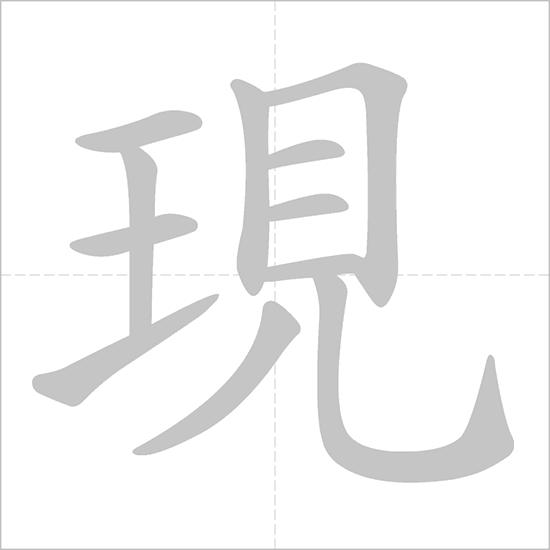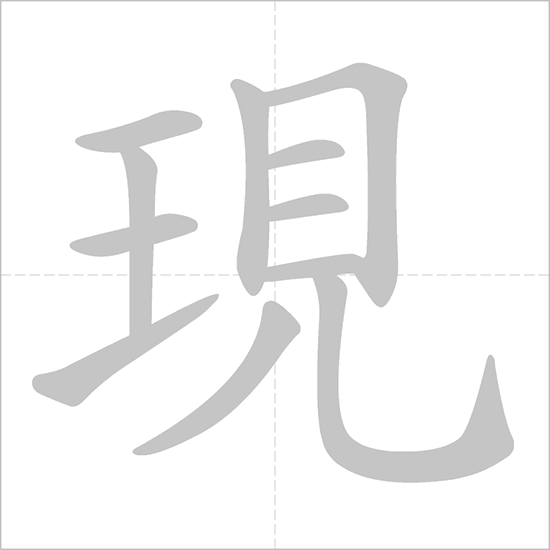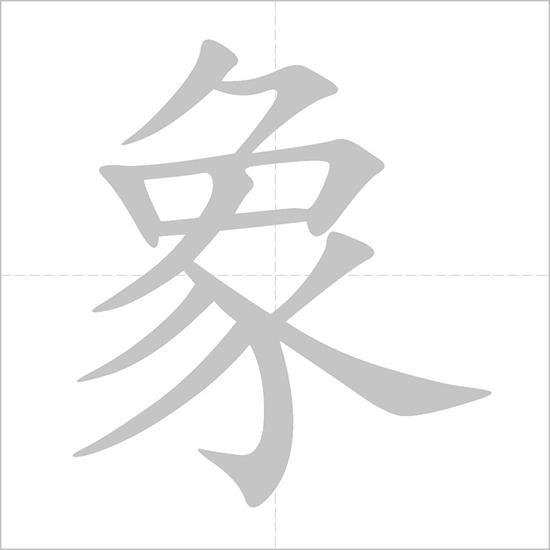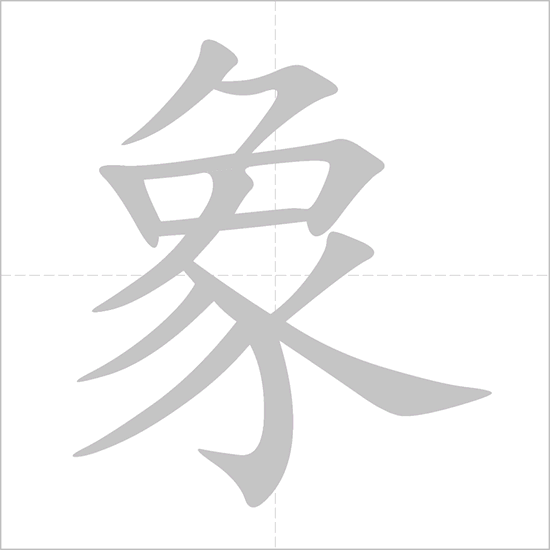Showing Results in:
- ENGLISH
- SEE TRADITIONAL
- SEE CANTONESE
-
Tone
Phonetics: Tone colors (āáǎàa):
Recent Searches:
Learn more about 現象
- Written Chinese
- Dictionary
- "現象" Character Details
| Pinyin | Yale | Jyutping | English Definition for Chinese Text |
|---|---|---|---|
| yin6 jeung6 | jin6 zoeng6 | appearance / phenomenon |
| Traditional Chinese | Pinyin | Yale | Jyutping | English Definition for Chinese Text |
|---|---|---|---|---|
| yin6 | jin6 | to appear / present / now / existing / current | ||
| jeung6 | zoeng6 | elephant / shape / form / appearance / to imitate |
How do you remember 現象 ?
Post your photos, example sentences and daily homework here to share with the Chinese learning community.
Measure Words for 現象
How to use 現象 in a Sentence
- 甚 shèn
- 至 zhì
- 很 hěn
- 多 duō
- 科 kē
- 學 xué
- 家 jiā
- 都 dōu
- 不 bù
- 能 néng
- 解 jiě
- 釋 shì
- 這 zhè
- 種 zhǒng
- 自 zì
- 然 rán
- 現 xiàn
- 象 xiàng
- 。 .
Even many scientists cannot explain this kind of natural phenomenon.
The decadence of modern Western society
Does coincidence come under the umbrella of the paranormal?
'solitude'is a phenomenon which bears consideration.
- 物 wù
- 質 zhì
- 從 cóng
- 熱 rè
- 區 qū
- 轉 zhuǎn
- 移 yí
- 至 zhì
- 冷 lěng
- 區 qū
- 有 yǒu
- 助 zhù
- 於 yú
- 減 jiǎn
- 少 shǎo
- 熱 rè
- 失 shī
- 衡 héng
- 現 xiàn
- 象 xiàng
- . .
Movement of matter from hot regions to cooler ones will tend to decrease the thermal imbalance.
- 這 zhè
- 項 xiàng
- 法 fǎ
- 案 àn
- 的 de
- 推 tuī
- 出 chū
- 是 shì
- 為 wéi
- 了 le
- 終 zhōng
- 止 zhǐ
- 碼 mǎ
- 頭 tóu
- 的 de
- 限 xiàn
- 制 zhì
- 競 jìng
- 爭 zhēng
- 現 xiàn
- 象 xiàng
- 。 。
The Act was introduced to end restrictive practices in the docks.
- 肝 gān
- 硬 yìng
- 而 ér
- 腫 zhǒng
- 大 dà
- 和 hé
- 肝 gān
- 內 nèi
- 膽 dǎn
- 汁 zhī
- 淤 yū
- 沸 fèi
- 的 de
- 生 shēng
- 化 huà
- 改 gǎi
- 變 biàn
- 是 shì
- 典 diǎn
- 型 xíng
- 現 xiàn
- 象 xiàng
- . .
Firm liver enlargement and biochemical evidence of intrahepatic cholestasis are typical manifestations.
- 他 tā
- 們 men
- 常 cháng
- 常 cháng
- 把 bǎ
- 最 zuì
- 簡 jiǎn
- 單 dān
- 的 de
- 自 zì
- 然 rán
- 現 xiàn
- 象 xiàng
- 歸 guī
- 因 yīn
- 為 wéi
- 他 tā
- 們 men
- 不 bù
- 了 le
- 解 jiě
- 的 de
- 神 shén
- 力 lì
- 所 suǒ
- 至 zhì
- . .
They often attribute the simplest manifestations of nature to agencies of which they know nothing.
- Chinese Characters with 1 Stroke
- Chinese Characters with 2 Strokes
- Chinese Characters with 3 Strokes
- Chinese Characters with 4 Strokes
- Chinese Characters with 5 Strokes
- Chinese Characters with 6 Strokes
- Chinese Characters with 7 Strokes
- Chinese Characters with 8 Strokes
- Chinese Characters with 9 Strokes
- Chinese Characters with 10 Strokes
- Chinese Characters with 11 Strokes
- Chinese Characters with 12 Strokes
- Chinese Characters with 13 Strokes
- Chinese Characters with 14 Strokes
- Chinese Characters with 15 Strokes
- Chinese Characters with 16 Strokes
- Chinese Characters with 17 Strokes
- Chinese Characters with 18 Strokes
- Chinese Characters with 19 Strokes
- Chinese Characters with 20 Strokes
- Chinese Characters with 21 Strokes
- Chinese Characters with 22 Strokes
- Chinese Characters with 23 Strokes
- Chinese Characters with 24 Strokes
- Chinese Characters with 25 Strokes
- Chinese Characters with 26 Strokes
- Chinese Characters with 27 Strokes



